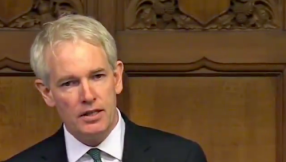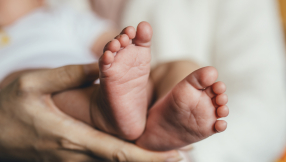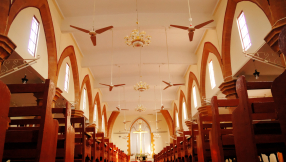Two Brazilian missionaries held in a Senegal jail without charge for five months were released on bail this month, yet still face accusations they operated youth programmes without permits.
Jose Dilson Da Silva is a missionary with the Brazilian Presbyterian Church in the Senegalese capital Dakar. Zeneide Moreira Novais, who works for Missao Servos, runs an orphanage for street children in Mbour, 80 kilometres south of Dakar.
The Brazilian National Organisation of Evangelical Lawyers for the Defence of Fundamental Civic Freedoms, or ANAJURE, says a final judgment on their case is expected within 30 days of their April 5 release.
Da Silva, who has worked in Senegal since 2005, runs a private school in Dakar. He set up the orphanage and Project Obadiah in 2011 to take children from the streets, house and feed them and provide education and sports activities. Novais works as the orphanage "mother".
ANAJURE President Uziel Santana told World Watch Monitor that the complaint about forceful conversions of Muslims found a legal foothold in the discovery that Da Silva's projects had been operating without necessary licenses.
Their troubles began when a father became upset that his son, said to be 17 years old, had learned about Christianity in the project, which has 200 registered children. Local media reported that the teenager "refused to take part in Islamic prayers, and was acting like a Christian".
Da Silva's son Jon wrote about the episode online:
"The man said my father had started an association to harm the children of Senegal," the younger Da Silva wrote. "The charge is said to be that 'this association opened a centre where they receive street children and talibes, and the association has thus recruited 17 children to force them to undergo a two to three month training for trades such as carpentry and sewing.' "
The elder Da Silva apparently went to the police station to respond to enquiries, and was then detained. Shortly thereafter, Novais was arrested in Mbour. They were held in a prison in Thies, the capital of eastern Senegal, awaiting formal charges. A request for bail was initially denied.
The original accusations were of child trafficking and conspiracy to break the law. The charges of conspiracy, "exploitation of minors" and "juvenile diversion", according to ANAJURE, were "proved later by the local authorities themselves as unfounded".
Yet the two missionaries remained in detention, and authorities never appeared before a judge to argue why it would be lawful to keep them locked up.
According to the missionary's son, who started an online petition for Da Silva's release, the two were held in filthy, overcrowded conditions, and were forced to share a cell with already-convicted prisoners.
"He is incarcerated in a filthy cell crammed with 35 other prisoners," the younger Da Silva wrote. "The prison conditions are severe. They have been forced to sign papers without being allowed to read them, put into overcrowded rooms without windows or a place to sit or sleep, and affected by the mosquitos and heat. My mother and brother are only able to visit my father on Mondays and Fridays for 10 minutes. It is difficult for them to see him being treated like a criminal, dragged away from them and treated poorly."
ANAJURE President Uziel Santana told World Watch Monitor that the complaint about forceful conversions of Muslims found a legal foothold in the discovery that Da Silva's projects had been operating without necessary licenses. Santana said Da Silva had attempted to obtain the permits when he began Project Obadiah, but was defrauded by a bogus lawyer who took his money without securing the licenses. Santana said Da Silva let the issue lie.
"Project Obadiah was running normally. Even without its permits, (Da Silva) had no idea that it was illegal until a child's father fills a complaint," Santana said.
"However, at the police station, the issue about the permits was not important," he said. "The main problem was 'Christianisation'. A misplaced legal comma gives room to any complaint against Christians."
Santana said ANAJURE was able to obtain the missionaries' release by persuading the judge that the licensing snafu is the only mark on their otherwise spotless records in Senegal.
"When we submitted evidences that they didn't have criminal records, both were temporarily free to go," he said. "They (are required) to present themselves fortnightly at the jail and have no authorisation to leave the country. Within 30 days of their release they will be judged." In the meantime, Santana said ANAJURE is working on obtaining the necessary permits for Project Obadiah.
Despite the ordeal, several local sources reported that Da Silva remained in good spirits throughout, providing witness to his faith to cellmates. He is reported to have said, in a letter to his wife, Marli, "Write to everyone, even to those in Senegal, that the enemy will throw some in prison, but everything will be to God's glory."
Many thousands of children in West Africa, some as young as three or four-years-old and mainly from rural poor families who cannot afford to raise them, are sent to cities like Dakar for an education, which consists mainly of Koranic classes. These "talibes", or "students of the Koran", are required to beg on the streets, overseen by older talibe boys, and can become subject to various abuses.
They are often kept in poor conditions. In March, nine children were killed in a fire at a Koranic school in Senegal.
When the children become teenagers, they leave the imams' care and are expected to look after themselves and find work.
The release of the two missionaries was welcomed with relief by members of Christian communities in Thies. An expatriate who attended the Sunday service at the Baptist Church told Watch World Monitor that there were tears of joy and an emotional time of prayer.
This detention without trial of foreign Christian workers raises a number of questions in a country seen as a democratic model in Africa and known for its culture of tolerance.
Senegal neighbours Mali and Mauritania, and of its population of 13 million, about 94 per cent are Muslim.
Co-habitation with its Christian minority has been historically peaceful; Senegal's first President (1960 to 1980) Léopold Sédar Senghor, was a Catholic, and Pope John Paul II visited in 1992.
This culture of tolerance is seen in various ways in Senegal: Christians and Muslims are buried in the same cemeteries in several cities such as Joal, and Ziguinchor in the Casamance.
However, as with many West African countries, Senegal has high poverty and widespread unemployment; human trafficking and child exploitation are a serious social concern, despite a relatively stable economy.
A number of attacks targeting Christians have been reported in more recent years. Seven evangelical churches were ransacked or burned during 2010 and 2011, prompting a strong reaction from the Fellowship of Evangelicals in Senegal. Its President at that time, Pastor Eloi Sabel Dogue, condemned those attacks and called for respect for the law in a press conference held on July 1st, 2011.
"Neither the Constitution of Senegal, nor the African Charter of Human Rights, nor the UN Declaration of Human Rights, nor even less our cultural values can be invoked in justification of such acts," he said.
Source: World Watch Monitor













